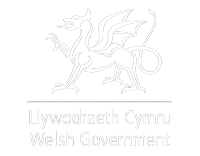- Andersons’ consultants are continuing to support their clients during the pandemic. If you require any advice, please contact your usual consultant, or the office on 01664 503200 or email [email protected].
- The payment window for BPS 2020 opened on 1st December. However, Scotland has used a National Scheme to make 90% advance payments, starting back in September. Wales has a good record for making payments on the first day, but those who do not receive payment in the first week, will hopefully have applied for a 90% advance; applications closed on 27thNovember. England does not have any advance options, but anecdotal evidence shows more payments are expected in the first tranche. The exchange rate is the same as in 2019, but payment rates are higher as no financial discipline has been deducted this year.
- The Agriculture Act 2020 has received Royal Assent enshrining into law the phasing out of the BPS over the seven year ‘Agricultural Transition’ in England (more information has been published on this and is included in our Spotlight article – see below). There had been strong lobbying for the Act to also include minimum standards for food imports to the UK. A compromise was reached between the House of Lords and House of Commons after the Government tabled a new amendment, meaning the newly formed Trade & Agricultural Commission would be put on a statutory footing, with its reports on future trade deals put before Parliament.
- The Comprehensive Spending Review (CSR) delivered on the 25th November, painted a grim picture of the economy; with it set to shrink by 11.3% this year (2020-21) – the largest fall for 300 years. A recovery is then forecast with 5.5% growth in 2021-22 and 6.6% the following year. For farm businesses, total farm support in England will be £2.4 billion in 2021-22 to meet the government’s commitment to maintain the current annual budget to farmers in every year of this Parliament.
- Brexit negotiations are at a crucial stage and, although the EU believes 95% of the text for the trade deal has been agreed, 3 sticking points remain. These are the level playing field provisions, State Aid and fisheries. Given that several deadlines have now passed and the Transition Period will end on 31st December, time is now the biggest threat.
- The Scottish Government has announced payments under the Less Favoured Areas Support Scheme (LFASS) will continue in 2021 and will be increased back to the levels paid in 2018. In addition, regulations are being put before Parliament to allow LFASS to continue to 2024, also fixing payments at (the higher) 2018 rate. But there is frustration over the lack of progress on support post 2024. NFU Scotland has said the Scottish Government needs to ‘stop dithering and start delivering’.
- The first round of the new ‘Farm Business Grant – Yard Coverings’ scheme is open in Wales. A General Rules Booklet with a list of the eligible items can be found at https://gov.wales/sites/default/files/publications/2020-11/farm-business-grant-yard-coverings-rules-booklet_0.pdf. Applications have to be made via RPW Online and guidance on how to do this can be found via https://gov.wales/farm-business-grant-yard-coverings-using-rpw-online-apply The minimum grant threshold is £3,000 per application and the maximum £12,000. This FBG – Yard Coverings Scheme is separate to the main FBG Scheme, meaning any funds received under the main scheme do not affect the Yard Covering scheme thresholds and vice-versa. The grant provides a maximum 40% contribution towards standard costed capital investments in equipment. The closing date for EOIs is 18th December. A further round is expected to run from 18th May to 25th June 2021.
- The Government has announced an extension to the temporary increase in the Annual Investment Allowance (AIA). In the 2018 Budget, the cap was increased from £200,000 per annum to £1 million. It was due to revert back to £200,000 on 1st January 2021 but will have a year-long extension until 1st January 2022. The AIA provides businesses with 100% same year tax relief on qualifying capital expenditure which includes plant and machinery.
- British Sugar is forecasting ‘well-over’ a 10% decline in sugar production compared to last year’s 1.19m tonnes. Dry conditions at planting and virus yellows have impacted the crop. It is a similar picture in continental Europe. In France, where yields are reported to be down between 25-50% there has been an easing of the neonicotinoid ban to try and reduce the prevalence of virus yellows and save the sector.
- The use of Glyphosate could be extended until at least 15th December 2025. All active substances due to expire between 1st January 2021 and 31st December 2023 will be given a 3-year extension under the new GB pesticides regulations.
- Defra has launched a consultation on reducing ammonia emissions from urea fertilisers. Defra’s preferred option is a ban on solid urea fertilisers. The consultation closes on 26th January.
This month’s Spotlight looks at Defra’s ‘Path to Sustainable Farming’ publication which gives more detail on future farm support in England, including the deductions to BPS payments and the schemes which will be in operation in the future. Click Here for further information.
If you would like more detail on the topics covered above, why not subscribe to Andersons’ AgriBrief Bulletin? Over the course of each month, we give a concise and unbiased commentary on the key issues affecting business performance in the UK agri-food industry, and its implications for farming and food businesses. Please click on the link below for a 90-day free trial:



